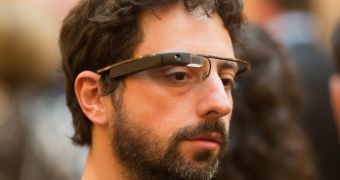Along with its financial report, Google also announced that it was planning a stock split. Owners of class A common stock will get one class C share for each share they already own.
The newly created class C shares will be worth the same as the class A ones, but will come with no voting rights. Currently, there are two types of Google Shares, class A are the regular ones, come with 1 vote and are publicly traded.
Class B shares are privately owned, mostly by Google execs, and come with 10 votes, but they are worth the same as class A shares.
What this means is that the two Google cofounders along with Eric Schmidt are able to control most of the voting power even if they don't have a majority share of the company.
The stock split provides the three with even more power. Class C shares come with no votes and are to be used for employee compensation and in other cases when Google may need to issue shares, for acquisitions for example. This ensures that the three leaders' voting power is not diluted.
Google's triumvirate defended the move, saying they need to stay on top to be able to execute on long-term plans without fear of being challenged in their decisions.
"We have decided that maintaining this founder-led approach is in the best interests of Google, our shareholders and our users. Having the flexibility to use stock without diluting our structure will help ensure we are set up for success for decades to come," Larry Page said, writing on behalf of himself and Sergey Brin.
"There’s no particular urgency to make these changes now—we don’t have an unusually big acquisition planned, in case you were wondering," he added.
When it went public, Google made it clear that its founders plan to hold the reigns. Since then, in fact, there's been a trend of founders retaining more power when going public or accepting investors, Facebook's Mark Zuckerberg being the prime example of this.

 14 DAY TRIAL //
14 DAY TRIAL //